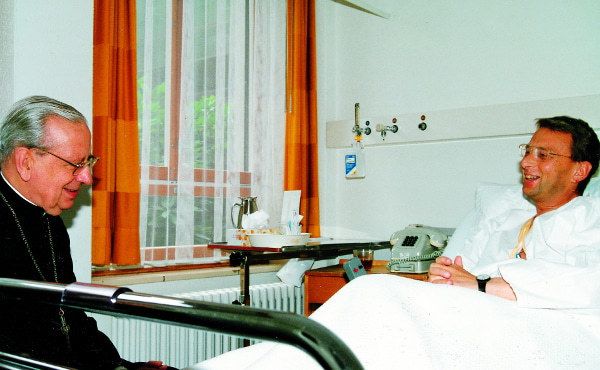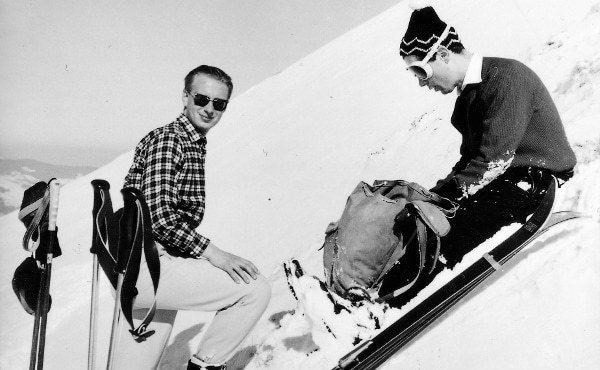Toni Zweifel grew up in a family that was quite well-off. His friends and acquaintances realized this right away. He drove an expensive two-seater sports car that his father had given him for his eighteenth birthday. He also had an expensive camera that not everyone could afford. And he brewed his own coffee with his own coffee-maker; it was designed to make two cups at the same time but, very much an engineer and an individualist, he had altered it to make just one cup.
During his studies at the Federal Institute of Technology in Zürich, Toni met some people who were setting up the Fluntern Student Residence. The Catholic orientation of the residence was entrusted to Opus Dei. Somewhat surprisingly, although he was on the point of finishing his studies, Toni at the end of 1961 decided to move in. He left behind his nice apartment for a room shared with two fellow students.
In March 1962 he requested admission to Opus Dei. He was quick to grasp the spirit of poverty and detachment from excessive possessions that is part of every serious Christian life.
First of all he separated himself from his coffee-maker, which he later referred to as the symbol of his self-centeredness. He put his camera at the disposition of the student residence. And he traded in his small sports car for a large seven-passenger sedan, which was often used by the students for excursions. Although he was an expert driver and loved to be behind the wheel, he willingly let the car be used by other less experienced drivers.
All of this, however, was just the most visible sign of Toni’s detachment, for from then on his everyday life was marked by temperance in his use of material goods, hidden by his outward elegance and naturalness. Like his colleagues and friends, he continued to use the material means that were necessary, for only in this way could he sanctify his professional work. But he strove not to become attached to these goods, placing them at the service of God and neighbor. For himself personally, he used only the most necessary items and lived for many years as a matter of course in a small and Spartan attic room.
He took great care of all the instruments he used in his work so that they would last longer. For the excursions to the mountains that he enjoyed so much, he used a pair of hiking trousers and an “anorak” he had inherited from his grandfather, which lasted right to the end of his life.
While working at the Limmat Foundation, Toni kept careful track of all the contributions. He restricted his business trips to those that were absolutely necessary. And he gave away his large inheritance to charities and renounced any personal use of it.
Besides material possessions, Toni showed great detachment in other areas as well. He was very willing to set aside his personal opinion or plans whenever the good of others required it. And with surprising quickness and serenity he even accepted the loss of his health.

At the age of 24 Toni had everything that most people seek in life: money, intelligence, success, and very good prospects for his career. But that did not make him truly happy. This only came with his decision to follow Christ’s call and free himself interiorly from everything. The first result was a joy he had never experienced before. While the rich young man in the Gospel (Mt 19:16-22) chose to keep his material goods and went away sad, Toni is living proof that those who are “poor in spirit” (Mt 5:3) will be “blessed” and find happiness.
